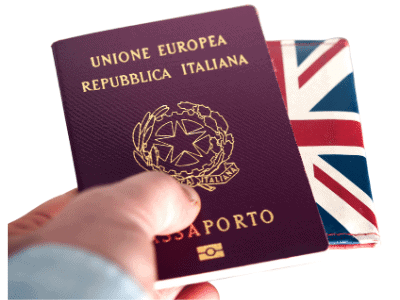Recommended
Begin Your European Property Investment Adventure Europe—a continent rich in …
Retirement is an exciting phase of life but requires careful …
Baja California is at the start of a 30-year growth …
The right to free movement, living, studying, and retiring in …
Cyprus boasts one of the most favorable tax systems in …
Croatia has emerged as a prime destination for digital nomads, …
As the new year unfolds, many people are inspired to pursue significant life changes, such as moving abroad. With the growth of remote work, innovative visa programs, and attractive tax incentives for digital nomads, investors, and families, the possibilities for international relocation have expanded.
However, moving abroad is a privilege limited to those with the right passports, as many nationalities face barriers. For those fortunate enough to have the option, choosing a new country requires thorough research and planning. Moving involves more than just dreaming—it requires considering tax implications, work visas, healthcare, and quality-of-life factors.
A valuable resource is the annual Expat Insider survey by InterNations, which gathers insights from nearly 12,000 expats from 177 nationalities in 181 countries. This survey evaluates various aspects of expat life, such as quality of life, ease of settling in, working abroad, personal finance, housing, and language.
Retirees can also benefit from resources like Live and Invest Overseas, which ranks top retirement destinations. The 2024 index names Valencia, Spain, Braga, Portugal, and Mazatlán, Mexico, as the top three spots.
Considering the impact of your move on your host country is crucial, especially in places experiencing significant immigration from the US and other wealthy nations. Megan Frye, a relocation consultant in Mexico City, emphasizes the need to be aware of migration policy inequities and their effects on local communities.
While many destinations cater to expats, this list highlights key countries based on quality of life, affordability, safety, and cultural and outdoor activities, focusing primarily on US citizens.
Portugal
Pros: Affordability, quality of life, mild climate, and excellent healthcare make Portugal attractive. It is also one of the safest countries in the world.
Cons: Recent changes to the Golden Visa program and backlash against expats in Lisbon are challenges.
Spain
Pros: Spain offers modern cities, charming towns, high-quality healthcare, and vibrant culture. It is also LGBTQ+ friendly.
Cons: The language barrier outside major cities and adapting to Spanish schedules can be difficult. Political divisiveness is also a concern.
Netherlands
Pros: Known for its cycling culture, excellent education, and the 30% tax ruling for highly skilled workers.
Cons: High living costs, high income taxes, and gloomy weather are drawbacks.
Germany
Pros: Germany boasts a strong job market, universal healthcare, and family-friendly social benefits. The freelancer visa is relatively easy to obtain for US citizens.
Cons: Bureaucratic challenges, limited convenience services, and a tight housing market in cities like Berlin are issues.
Italy
Pros: Italy offers cultural richness, excellent healthcare, and a friendly atmosphere.
Cons: Employment opportunities are limited, and navigating legal processes can be challenging.
France
Pros: Universal healthcare, work-life balance, and strong social benefits make France attractive.
Cons: High taxes and the language barrier outside major cities can be challenging.
For each of these countries, various visa options and processes exist, from digital nomad and entrepreneur visas to retirement and investment programs. It’s essential to carefully plan and consider all aspects before making the move.








